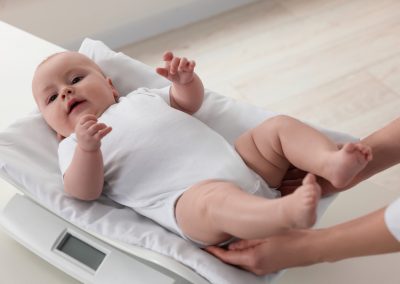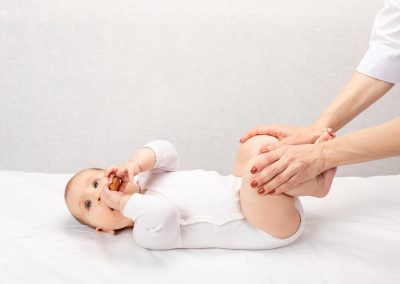Baby checks will probably be raised by your obstetrician too – they’ll reinforce the importance of them and that you need to find a paediatrician to undertake them. I undertake a great number here and work with all of Cayman’s private obstetricians.
I like to discuss baby checks antenatally, so you know what will happen when. If you have had a baby before, you’ll know how that works and may just want to book me. If this is your first delivery, please do come and meet me and I will explain all about them (and me!).
Latest News From Our Blog
Why Dr Sara Watkin for Baby Checks?
It’s a special moment and it needs to be a safe one, one handled with compassion and sensitivity and one when your wishes are fully respected. I absolutely LOVE being in delivery and have now attended more than 500 in Cayman so far!
30 Years' Experience
Tertiary Trained & Experienced
Calm & Reassuring
True Consultant Neonatologist
Current Resuscitation Skills
Available 24/7 Quickly
Former NICU Chief of Service
Newborn Emergencies
Neonatal care from 24 Weeks
Understanding Baby Checks
Generally, within 24 – 48 hours of birth, we undertake what are called baby checks, a thorough physical examination for your baby including some specific screening tests to find out if your baby has any problems with their eyes, heart, hips and, in boys, the testicles (testes). This examination is almost always carried out in hospital before you go home.
Our aim is to spot any problems early so treatment can be started as soon as possible or advisable. Usually though, nothing of concern is found, which then provides you with reasurance at what is a nervous time for any parent, especially new ones. If we do find a possible problem, we may refer your baby for more tests or arrange follow up.
Preferably, both parents should be there when the examination is done and I tend to explain what it involves and what I am doing. Some parts of the examination may be a little uncomfortable for your baby, but it won’t cause them any pain.
Follow on Checks
You are very welcome to bring your baby weekly to the clinic for complimentary weight checks.
Does my baby have to have Baby Checks?
They are not obligatory but they are strongly advised. In the UK, a handful of babies do not have them out of over 700,000 births per year and so that tells you something about how much importance is placed upon them. All paediatricians strongly recommend Baby Checks because of the enormous value to picking up easily addressed issues early. You won’t find a paediatrician who would not want baby checks for their own children!
When will you get the results?
I should be able to give you the outcome of the exmaination there and then. Sometimes, usually when we find something that needs following, we might need to conduct further tests or wait for a period of time for that aspect of the examination. I’ll be able to explain this clearly at the time and what the follow up plan is.
How are Baby Checks Done?
During the examination, I will want to:
- Look into your baby’s eyes with a special torch called an ophthalmoscope to check how their eyes look and move
- Listen to your baby’s heart to check their heart sounds
- Examine their hips to check the joints
- Examine baby boys to see if their testicles are in the right place
What does the newborn physical examination check for?
Eyes
I will check the appearance and movement of your baby’s eyes. I am looking for certain conditions like cataracts, a clouding of the transparent lens inside the eye, and other conditions.
About 2 or 3 in 10,000 babies are born with problems with their eyes that require treatment. The examination is not a test of how well your baby can see, purely a way of spotting complications or certain conditions.
Hips
A few newborn babies have hip joints that are not formed properly, known as developmental dysplasia of the hip (DDH). If this is left untreated, it can cause a limp or joint problems later on. About 1 or 2 in 1,000 babies have DDH that needs treating.
Heart
I will examine your baby’s heart. I’ll do this by observing your baby, feeling your baby’s pulses, and listening to their heart with a stethoscope. Sometimes we find heart murmurs, where the heartbeat has an extra or unusual sound caused by a disturbed blood flow through the heart.
Heart murmurs are quite common in babies. The heart is normal in almost all cases where a murmur is heard but about 1 in 200 babies has a heart problem that needs treatment. If I find a heart murmur, I’ll want to follow up your baby to ensure that there is not a problem that requires treatment.
Testicles
Baby boys are checked to make sure their testicles are in the right place. During pregnancy, the testicles form inside the baby’s body. Sometimes they do not drop down into the scrotum until a few months after birth. In about 1 in 100 baby boys, the testicles descend only partially or not at all, which requires treating to prevent possible problems later in life, such as reduced fertility. If I find these issues, again I’ll want to follow up to ensure that everything happens in the way that it should or provide treatment as necessary.
Sign Up to My Occasional Newsletter
If you have issues submitting above e.g. spambot recognotion, please use the manual form: Newsletter Manual Form




